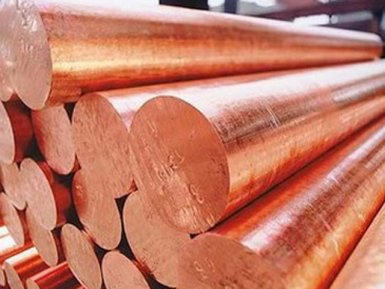Production of tungsten electrode, non-melting tig

Are you interested in the use of tungsten non-consumable electrodes from the supplier company AvecGlob? Here you will find interesting information on this topic /
general information
Tungsten is a refractory metal used to make electrodes for welding processes using the TIG method. The TIG process is based on the hardness of tungsten and its high thermal resistance when transferring the welding current to the arc.
Tungsten non-consumable electrodes are of different sizes and lengths and consist of either pure tungsten or a tungsten composition with rare earth elements and their oxides. The choice of electrode for the TIG process depends on the type and thickness of the base material and on the type of current — permanent or variable — used for welding.
Clean tungsten
Elecrodes of pure tungsten contain 99.50% tungsten, have the highest consumption of all types of electrodes in question and are usually less expensive than «doped» analogues.
These electrodes, when heated, provide greater arc stability when welding with alternating current with a balanced wave. Pure tungsten also provides a good arc stability for AC sinewave welding, especially for aluminum and magnesium welding, but is usually not used for DC welding, as it does not provide a strong arc such as toric or tinned electrodes.
Electrodes with thorium
2% thoriated tungsten electrodes contain a minimum of 97.30% tungsten and 1.70−2.20% thorium. They are the most commonly used electrodes because of their durability and ease of use. Thorium increases the emission properties of the electrode, which improves the arc start and allows increasing the current capacity. This electrode works much lower than its melting point, which results in a much lower consumption rate and eliminates arc wandering for greater stability. It also has a lower contamination level of the weld than other electrodes. Unlike pure tungsten, these electrodes are designed only for AC welding of a special type (for example, for welding thin-walled products or aluminum parts). They can be used both for direct and reverse polarity of DC for welding any steels and titanium. Thorium is radioactive; so always follow the safety instructions.
Supplier — AvekGlob Company — offers tungsten non-consumable electrodes at an affordable price from the manufacturer. The supplier guarantees the timely delivery of products to any address specified by the consumer.
Electrodes with cerium
2% of the tungsten electrodes contain a minimum of 97.30% tungsten and 1.80−2.20% cerium. These electrodes work best when welding DC at low current settings, but can be used in AC or DC processes. Thanks to excellent arc welding at low energies, the cured tungsten has become popular in applications such as the manufacture of orbital pipes and pipes, as well as in the welding of sheet metal.
Like thorium, it is best used for welding carbon and stainless steels, nickel alloys and titanium. It is not recommended to use cered electrodes at high current values.
Electrodes with lanthanum
1.5% lanthanum electrodes) contain a minimum of 97.80% tungsten and 1.30−1.70% lanthanum or lanthanum. These electrodes have excellent arc starting, low burnup rate, good arc stability and excellent ignition characteristics — many of the same advantages as cerium electrodes. Conductivity characteristics are equivalent to electrodes with 2% thorium.
Lanthanide electrodes work well with reverse polarity of alternating current. They are used for welding steel with direct current or alternating current using a rectangular pulse. An arc ignition is possible at a lower voltage.
Electrodes with zirconium
Zirconium tungsten electrodes contain not less than 99.10% tungsten and 0.15−0.4% zirconium. The zirconium tungsten electrode creates an extremely stable arc and is ideally suited for AC welding because it has a high resistance to contamination. Under no circumstances is it recommended to use zirconium compounds for DC welding.
Supplier — the company AvekGlob — offers to purchase in the range of tungsten non-consumable electrodes. Products can be bought at a price formed on the basis of European and world standards of production. Implementation is possible in bulk and retail, for regular customers, a flexible system of discounts operates.


